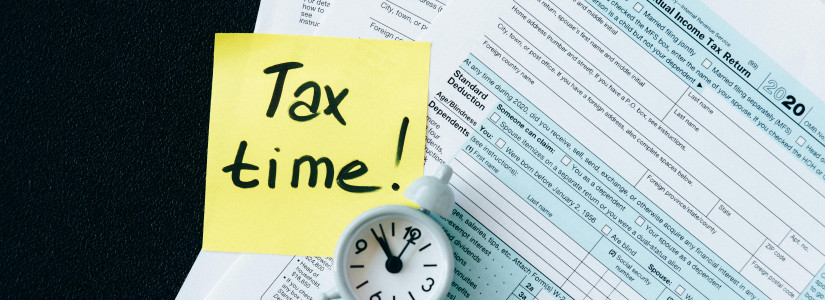Crypto Taxes: What Every Taxpayer Needs to Know
With cryptocurrencies like Bitcoin and Ethereum exploding in popularity in recent years, many taxpayers now need to report crypto-related income on their tax returns. But how exactly should you be handling crypto when it comes time to file your taxes?
This helpful guide will walk you through everything you need to know about reporting cryptocurrency transactions to the International Revenue Service (IRS).
The IRS treats cryptocurrencies like property, not currency. This means that if you sell, exchange, or otherwise dispose of crypto, you likely have a taxable event that needs to be reported.
According to IRS guidance, taxpayers must report income, gains, or losses from all taxable cryptocurrency transactions on their federal tax return for the year, regardless of the amount. This applies to activities like:
Even just transferring coins between wallets or accounts counts as a taxable event if you realized gains. The bottom line is that the IRS wants to know about all crypto-related activity if it results in tax implications.
Figuring out how much tax you owe on crypto transactions involves some calculations. Here are the basics:
While this may sound complex, today's crypto tax software makes tracking and calculating everything a breeze.
When it actually comes time to file your taxes, how you report crypto activity depends on the specifics:
The key is disclosing everything to the IRS to avoid trouble down the road. Make sure to keep detailed crypto tax records from exchanges, wallets, DeFi protocols, and other sources.
Intentionally failing to report cryptocurrency transactions or underpaying crypto taxes can lead to stiff IRS penalties. On top of owing back taxes and interest, you may face:
These fines can add up fast. For instance, say you owed $5,000 in taxes on crypto gains but didn't report it. The IRS could potentially hit you with $5,000 in back taxes, up to $1,000 in failure to file penalties, $1,000 for failure to pay, plus over $1,250 in interest - amounting to over $8,000 total.
The risks of skipping out on crypto taxes far outweigh the potential rewards. Don't play games with the IRS - properly report your crypto!
Cryptocurrency holders should take the following steps for tax season:
Dealing with crypto taxes may seem intimidating, but taking the right steps will ensure you stay compliant and avoid problems with the IRS. Don't ignore crypto tax reporting - the IRS is cracking down. Report accurately, file on time, and pay your fair share. With smart planning, you can confidently handle crypto taxes.
This helpful guide will walk you through everything you need to know about reporting cryptocurrency transactions to the International Revenue Service (IRS).
What The IRS Requires
The IRS treats cryptocurrencies like property, not currency. This means that if you sell, exchange, or otherwise dispose of crypto, you likely have a taxable event that needs to be reported. According to IRS guidance, taxpayers must report income, gains, or losses from all taxable cryptocurrency transactions on their federal tax return for the year, regardless of the amount. This applies to activities like:
- Selling cryptocurrency for fiat currency like US dollars
- Exchanging one crypto for another (i.e. Bitcoin for Ethereum)
- Earning cryptocurrency as income (mining, staking rewards, airdrops, etc.)
- Spending crypto to buy goods or services
- Receiving crypto as payment
Even just transferring coins between wallets or accounts counts as a taxable event if you realized gains. The bottom line is that the IRS wants to know about all crypto-related activity if it results in tax implications.
How To Calculate Crypto Taxes
Figuring out how much tax you owe on crypto transactions involves some calculations. Here are the basics:- You'll need to determine your cost basis, which is typically the amount you paid for the crypto when you acquired it.
- Then, when you dispose of coins, subtract your cost basis from the sale price to find your capital gain or loss.
- Gains are then taxed at either short-term or long-term capital gains rates depending on how long you held the crypto. Short-term gains for assets held less than a year are taxed as ordinary income.
- You can claim capital losses to offset gains, plus take an extra $3,000 deduction against regular income.
- For coins acquired through mining or other means, fair market value at the time of acquisition determines your cost basis.
- If you disposed of multiple coins from one wallet, use special methods like FIFO or average cost to identify your cost basis.
- Adjust your gains and income for any trading or transaction fees you paid.
While this may sound complex, today's crypto tax software makes tracking and calculating everything a breeze.
Reporting To The IRS
When it actually comes time to file your taxes, how you report crypto activity depends on the specifics:- Crypto sales that result in capital gain or loss go on Schedule D.
- Earned income in crypto gets reported on Schedule C if you're self-employed or on Form 1040 if you're an employee.
- Mining income goes on Schedule C.
- You may receive Form 1099-B or 1099-K from exchanges detailing your transactions, but you still must report activity not covered by these forms.
The key is disclosing everything to the IRS to avoid trouble down the road. Make sure to keep detailed crypto tax records from exchanges, wallets, DeFi protocols, and other sources.
Penalties For Non-Compliance
Intentionally failing to report cryptocurrency transactions or underpaying crypto taxes can lead to stiff IRS penalties. On top of owing back taxes and interest, you may face:- 5% penalty per month for failure to file a return on time
- 20% penalty for substantial underpayment
- 25% penalty for failure to pay on time
- $10,000+ penalties for "willful" failures like tax evasion or filing a fraudulent return
These fines can add up fast. For instance, say you owed $5,000 in taxes on crypto gains but didn't report it. The IRS could potentially hit you with $5,000 in back taxes, up to $1,000 in failure to file penalties, $1,000 for failure to pay, plus over $1,250 in interest - amounting to over $8,000 total.
The IRS Is Paying Attention
With crypto tax non-compliance rampant, the IRS is ramping up enforcement efforts:- Exchanges like Coinbase regularly issue 1099 forms to users and the IRS documenting transaction activity
- The IRS contracted blockchain analysis companies to help identify crypto tax evaders
- A new check box directly asking about crypto activity was added to Form 1040
- Taxpayers face perjury if they lie about crypto on their returns
The risks of skipping out on crypto taxes far outweigh the potential rewards. Don't play games with the IRS - properly report your crypto!
The Game Plan For Crypto Holders
Cryptocurrency holders should take the following steps for tax season:- Carefully track and calculate crypto income, trades, spending, rewards, mining, airdrops, and all taxable events.
- Maintain detailed records of your cost basis, fair market value, proceeds, and other transaction data.
- Report all crypto activities properly on your tax return. Consider using crypto-savvy tax software or consult with a tax advisor.
- File on time and pay any taxes owed to avoid interest and penalties.
- Amend past returns if you failed to properly report crypto in previous years.
Dealing with crypto taxes may seem intimidating, but taking the right steps will ensure you stay compliant and avoid problems with the IRS. Don't ignore crypto tax reporting - the IRS is cracking down. Report accurately, file on time, and pay your fair share. With smart planning, you can confidently handle crypto taxes.











